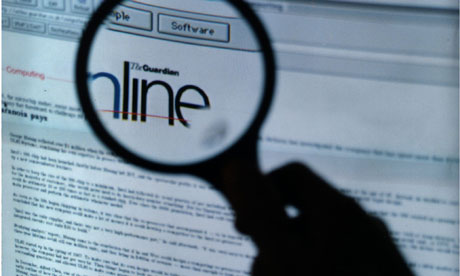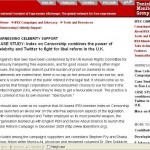Lord McAlpine case shows need for a public interest defence in libel
Gavin Phillipson is right to point out the failures in journalistic standards that led to damage to the reputation of Lord McAlpine. But he is wrong to extrapolate from this single case a misleading analysis of how the Libel Reform Campaign’s public interest defence would work in practice. Since the beginning of our campaign, claimant lawyers have raised the scenario of a senior figure smeared as a paedophile as rationale to defend the status quo. That the McAlpine scandal has happened right in the middle of the defamation bill passing through parliament gives us a good opportunity to say why the status quo actually does very little for those defamed.
This is a serious case. Lord McAlpine was not named by Newsnight, nor was he named by a single national newspaper or national broadcaster. However, the phenomenon known as “jigsaw identification” led to the unjust damage to McAlpine’s reputation. The public admonishment of poor journalism at the BBC, with an admission they got it wrong, has done more than anything to repair McAlpine’s reputation. Does anyone — with the exception of his lawyers — believe a cheque for damages will do more than this?
In fact, because our law is so unwieldy and costs 100 times the European average, it acts as a huge disincentive to sue. If Lord McAlpine were a primary school teacher or a nurse, it’s likely that the huge costs of taking on a defamation action (often a six figure sum, if not more, with no legal aid) would act as a deterrent, giving no redress whatsoever to repair reputation.
The Libel Reform Campaign has proposed a public interest defence that, as Phillipson pointed out, would give claimants the right for allegations to be “promptly clarified or corrected with adequate prominence”. If you’re a nurse, for the first time you get guaranteed redress.
Our defence also provides for reckless disregard for the truth of the allegation. If you publish a defamatory comment claiming that someone is a paedophile, without any knowledge of the underlying facts of the case (which would include social media users who named McAlpine), you are clearly displaying reckless disregard for the truth of that allegation. Under our proposals you would still be legally liable.
There is the bigger picture. The reason our clause has been tabled in parliament with cross-party support is that the status quo chills honest debate in the public interest. From the dumping of toxic waste by multinational corporations, rampant tax evasion by major corporations, the dangers from quack medicine, the exposure of international mafia gangs and the funding of terrorism – our current libel law’s lack of a serious public interest defence has chilled publication on all these issues.
Cardiologist and libel reform campaigner Dr Peter Wilmshurst was sued for pointing out possible problems with heart devices. Over the four years he fought his case, patients continued to have these devices implanted in their hearts. Some needed extensive surgery to have them removed because of the fault. This is why we propose our public interest defence. The status quo is totally ineffective and protects the rich but fails the poor – while allowing legal bullying to suppress information that will protect lives.
Over the last decade, from the banking crisis that caused our economy to implode, to the MPs expenses scandal that rocked the establishment, we can see that too little information has been exposed rather than too much. Our libel laws protect few. With support from over 60,000 people and over 100 civil society organisations, it’s time for a public interest defence in libel.
This post was originally published on Guardian Law.




 He is no stranger to arguments about free speech. In 1961, he
He is no stranger to arguments about free speech. In 1961, he 



